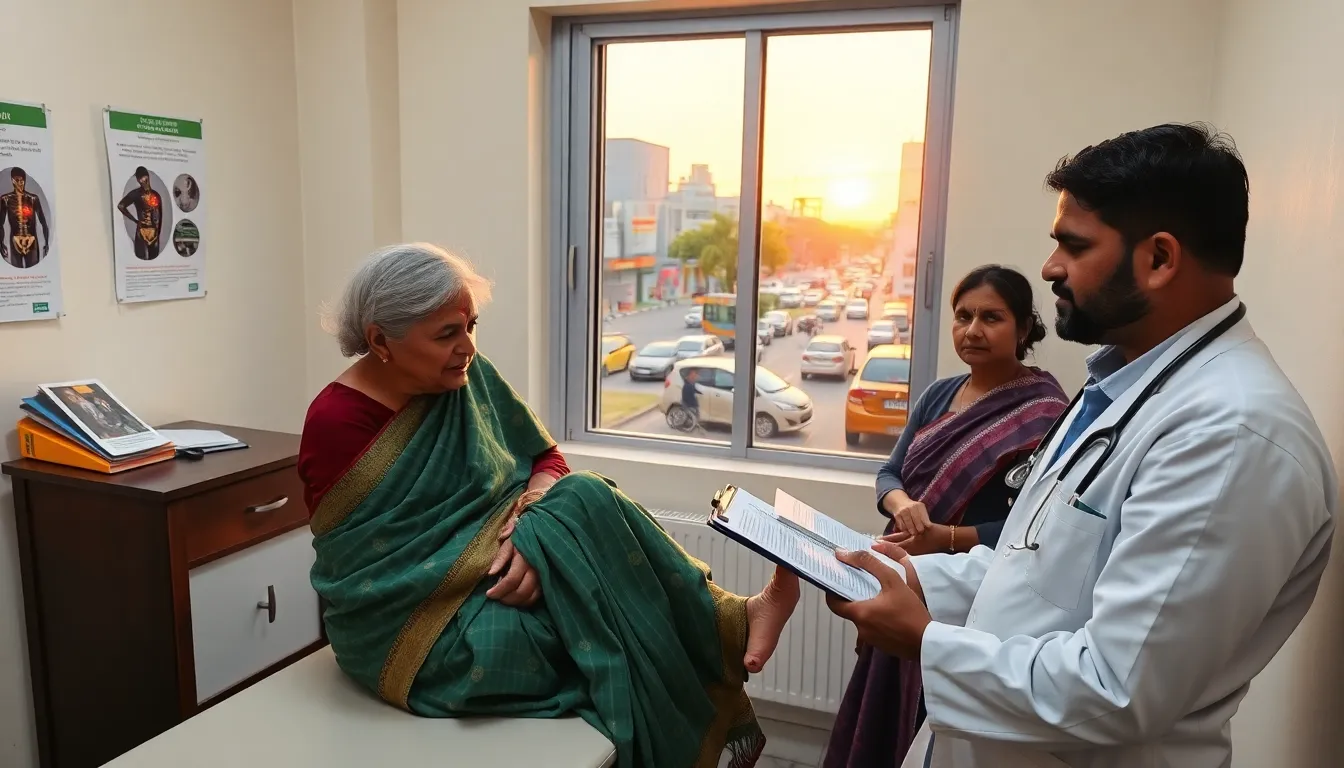A recent national study has revealed a serious health issue in India: nearly half of adults over the age of 45 report suffering from joint pain. This problem is not just a personal struggle; it is becoming a silent epidemic. According to the study published in BMC Geriatrics, around 47% of older Indians experience joint pain, and over 31% deal with persistent back pain. Surprisingly, many of these individuals do not seek timely medical care. They often rely on over-the-counter painkillers or home remedies, while some choose to simply live with the pain. Experts warn that this delay in seeking treatment can lead to more severe health problems, including irreversible damage and disability. The study highlights a large gap between the number of people suffering from chronic pain and the healthcare systems available to help them. Chronic pain is closely linked to issues like cardiovascular disease, mental health problems, and reduced physical function. Because of this, experts recommend treating chronic pain as a serious health condition rather than just a symptom of another issue. Dr. Rohit Gulati, a pain specialist at Nivaan Care, explains that many patients wait months or even years before seeking help. By the time they arrive at his clinic, they have often tried many treatments without success. At Nivaan, Dr. Gulati and his team use a comprehensive approach to pain management. This includes clinical diagnosis, movement therapy, regenerative medicine, and psychological support. Their goal is not just to relieve immediate pain but also to help patients regain their daily functions and prevent future pain. Dr. Sameer Gupta, a senior interventional cardiologist, emphasizes that untreated pain can lead to more severe health risks, such as heart disease. He notes that many patients lose their ability to move freely due to untreated back or knee pain, which can increase their cardiovascular risk. Pain can rob individuals of physical activity, emotional well-being, and sleep, making it crucial to manage pain early. Dr. Jyotsna Agarwal from Nivaan Care adds that chronic pain should be viewed with the same seriousness as conditions like diabetes or heart disease. The facility has developed an integrated care model that combines various specialists to address the many impacts of chronic pain. The study points out that women and older adults are at a higher risk of experiencing these issues. The highest rates of joint pain were found in states like Uttarakhand, Manipur, and Madhya Pradesh. As chronic pain becomes a growing public health concern, experts are calling for the Indian government to include pain management in its national health strategy. They urge for better access to multidisciplinary care and more awareness programs to encourage early intervention. While centers like Nivaan Care are making strides in this area, widespread changes are needed to effectively tackle the burden of chronic pain in India. In summary, the findings of this study show that chronic joint pain is a significant issue for older adults in India. Immediate action is necessary to improve awareness and treatment options, ensuring that those suffering from pain receive the care they need before it leads to more serious health complications.


Leave a Reply